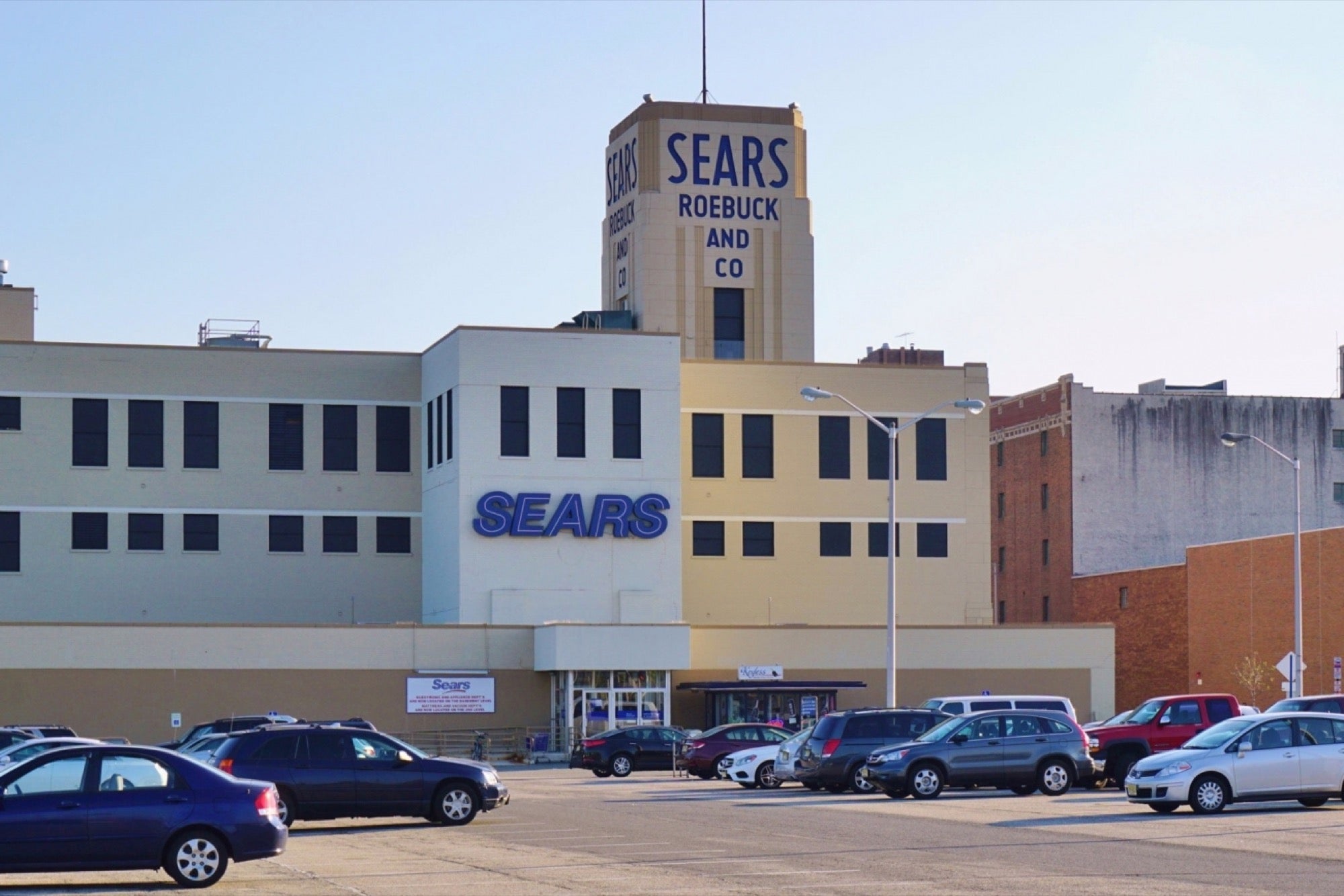What Sears Taught Amazon About Business Sears' 1800s innovations and market disruption model are still at the core of retail behaviors today. Retail companies would be wise to study this history.
By Zach Ferres Edited by Dan Bova
Opinions expressed by Entrepreneur contributors are their own.

When we hear the name "Sears," we think of the big department store we all shopped at in the '90s for electronics, furniture or a Father's Day tool-set for dad. However, it was actually the actions of Sears' 19th century founder -- which the company's recent iteration has ignored, to its own peril -- that led to the vibrant multichannel retail world we know today.
Related: Sears Said to Close Stores, Lay Off About 5,500 Employees
Way back in 1886, jeweler Richard Sears received a shipment of watches he couldn't sell, due to overstock and a lack of local clients. But, seeing an opportunity, this entrepreneur purchased the watches himself and sold them along the railway, netting himself a tidy profit. His little experiment was a success, and led to one of the largest innovations in retail ever: the mail-order catalog.
Finding an opportunity
Why did Richard Sears get the opportunity to buy his first box of watches on the cheap? Why couldn't he sell them himself?
In the late 1800s, people were beginning to move out of cities, to the suburbs. These people still needed products, but weren't strolling cities' commercial districts as often as before. So, Sears set out to test an assumption: He believed local supplies were too costly because de-urbanization had caused consumers to disperse; perhaps, he reasoned, those consumers would be comfortable with ordering, by mail, products they'd bought in the past at retail stores.
So, Sears used the railroads and post office in ways no one had, disrupting the status quo, with distribution tactics that resembled the ecommerce experience we know today.
Like the mail catalog king, today's online giants found success by disrupting distribution. And, the more they continue to do so, the stronger footholds they have in the market. Young companies trying to establish themselves must similarly seek to attack the conventional ways of doing business.
Related: 3 Crucial Elements of a Successful Dual-Channel Commerce Strategy
Interestingly, Sears actually used to charge a fee for access to its mail-order catalog. Sounds a lot like the subscription model behind Amazon Prime, eh? Amazon Prime and others like it have made an entire world of products available to consumers at the touch of a button.
Near-instant gratification lets shoppers enjoy their purchases quickly, leading to quicker buying decisions. Amazon's drone delivery systems promise to be even better than Prime, by delivering products the same day they're ordered, further changing up the shipping game.
Distribution disruption
What can today's retail and ecommerce companies learn from Sears' innovation? Here are three ways today's distribution shakeups might apply to your business:
1. Multichannel retailing: Just as the catalog created a new avenue for people to browse, today's marketers must pursue consumers through all channels. Brick-and-mortar locations still have their place, but how these fixtures are approached must be rethought.
Seventy-three percent of consumers praise the importance of online information on in-store purchases, and that percentage is on the rise. To reach a mobile audience, retailers need storefronts, phone sales, mobile apps and online stores to combine and provide holistic, omnichannel sales experiences.
2. Subscription and box models: Sears used to sell catalogs for 25 cents, giving customers access to discounted products shipped to their homes. According to John Warrillow's book The Automatic Customer, various subscription models give consumers special access to products (think: Costco) or provide a continuous stream of "set it and forget it" products on a monthly basis (think: Five Four Club).
Now, Amazon Prime and other services charge a flat initial fee so they have the funding required to provide the services customers want. Auto-renewing services and contracts make it easy for clients to keep receiving the products they love while giving companies a reliable stream of revenue.
3. Innovative shipping: Sears capitalized on the railroad and postal systems in a way no one had before. Online business took his idea and implemented it on a global scale, while making local delivery even more effective through new services like UberRUSH, which transforms the crowdsourced transportation giant into an effective same-day delivery option, or even Amazon's intriguing drone shipping plan.
Sears may not be the mega-company it once was, but its innovation in the late 1800s -- if not its products -- is still at the core of retail behaviors today. To emulate Sears' success, retail companies would be wise to watch market dynamics and continue thinking of ways to disrupt the distribution channels in ways nobody has before.
Related: The 5 Most Innovative Trends in Ecommerce to Watch for in 2016









